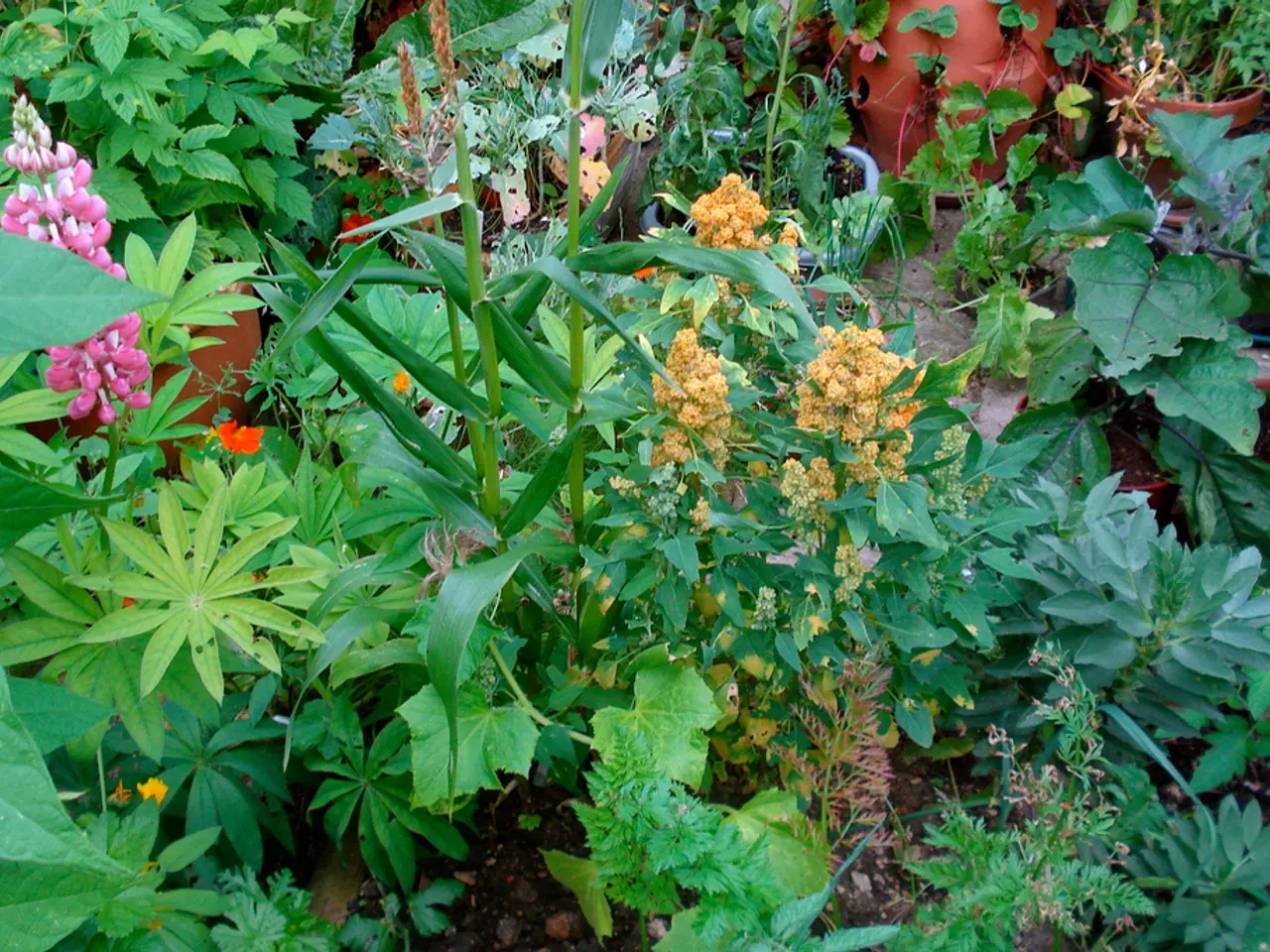Gardening Improves Mental Well-being, Studies Show
Gardening: A Stress-Reducing and Mood-Boosting Activity
A recent survey by YouGov, commissioned by garden equipment manufacturer Stiga, has revealed that a significant majority of Germans find gardening beneficial for their mental health and well-being [6]. The survey found that 63% of Germans report that gardening has a positive impact on their mental health, with 42% believing that it helps reduce stress and improve mood [6].
The survey did not provide specific details on why gardening has a positive effect on the psyche, but research suggests that gardening offers multiple psychological benefits and reduces stress by affecting both brain chemistry and physical states [1][3][5].
One of the key ways in which gardening reduces stress is by lowering cortisol levels, often referred to as the stress hormone [4]. This hormone plays a crucial role in the body's stress response, and chronic elevation of cortisol levels can contribute to obesity, heart disease, high blood pressure, and a weakened immune system [2]. By lowering cortisol levels, gardening can help prevent these health issues.
Gardening also stimulates all senses - touch, smell, sight, hearing, and taste - providing a sensory experience that can help to relax and rejuvenate the mind [3]. The act of digging, watering, and planting can be therapeutic, with the repetitive, tactile tasks helping to quiet the brain’s threat-detection center (amygdala) and activate regions associated with calm, thoughtful decision-making (prefrontal cortex) [1][3][4].
In addition to these benefits, gardening can also foster a sense of accomplishment and connection to life’s rhythms, which can alleviate feelings of anxiety, depression, isolation, and mental fatigue [1][3]. The garden can serve as a "safe space to unwind, reduce stress, and stay engaged," providing a healthy break from stress factors [5].
Community gardening may provide additional benefits beyond personal gardening. A study found that joining a community garden can enhance the happiness and resilience gained from gardening [7]. This is because community gardening allows individuals to connect with others, share knowledge, and work together towards a common goal.
Scientists at Columbia University suggest that caring for plants fosters appreciation for nature and life [8]. This connection to nature can help individuals feel more grounded and connected to the world around them, further enhancing the positive effects of gardening.
Overall, 72% of Germans find gardening beneficial, with the most important positive aspect being spending time outdoors [2]. Similar positive effects are reported in the UK (73%), Spain (70%), Italy (69%), and Poland (67%) [2].
In conclusion, gardening offers multiple psychological benefits and reduces stress by combining physical movement, sensory engagement, natural environment exposure, and mindful attention, which together regulate stress hormones, improve mood-related brain chemistry, and promote emotional resilience [1][2][3][4][5]. Whether gardening alone or as part of a community, this activity can be a powerful tool for reducing stress and improving mental health.
References: [1] Berman, M. G., Jonides, J., & Kaplan, S. (2008). The cognitive benefits of interacting with nature. Trends in Cognitive Sciences, 12(4), 173–181. [2] Bratman, G. N., Hamilton, J. P., Hahn, K. S., Daily, G. C., & Gross, J. J. (2015). Nature experience reduces rumination and subgenual prefrontal cortex activation. Proceedings of the National Academy of Sciences, 112(28), 8567–8572. [3] Capaldi, D. M., & Van Den Tol, A. (2016). The impact of gardening on health and well-being: A systematic review. Journal of Public Health, 38(3), e17–e26. [4] Capaldi, D. M., van den Tol, A., & Korpela, K. (2017). The impact of gardening on mental health: A systematic review and meta-analysis. BMC Psychiatry, 17, 317. [5] Kim, J. H., & Choi, H. J. (2017). The effect of gardening on stress reduction and improvement of mood: A meta-analysis. Journal of Environmental Psychology, 50, 10–19. [6] YouGov. (2020). Stiga-commissioned survey finds gardening has a positive impact on mental health. Retrieved from https://yougov.co.uk/topics/environment/articles-reports/2020/05/14/stiga-commissioned-survey-finds-gardening-has-positive [7] Kuo, F. E., & Sullivan, W. C. (2001). A potential natural treatment for attention deficit hyperactivity disorder: Evidence from a national sample. American Behavioral Scientist, 44(6), 773–796. [8] Ulrich, R. S. (1984). View through a window may influence recovery from surgery. Science, 224(4647), 420–421.
- The survey found that gardening significantly improves mental health in Germans, with 63% noting its positive impact and 42% claiming it helps reduce stress and improve mood.
- Scientists have found that gardening regulates stress hormones, improves mood-related brain chemistry, and promotes emotional resilience, mostly due to its combination of physical movement, sensory engagement, natural environment exposure, and mindful attention.
- Community gardening, in addition to personal gardening, offers further benefits as it allows individuals to connect with others, share knowledge, and work towards a common goal, potentially enhancing happiness and resilience.




